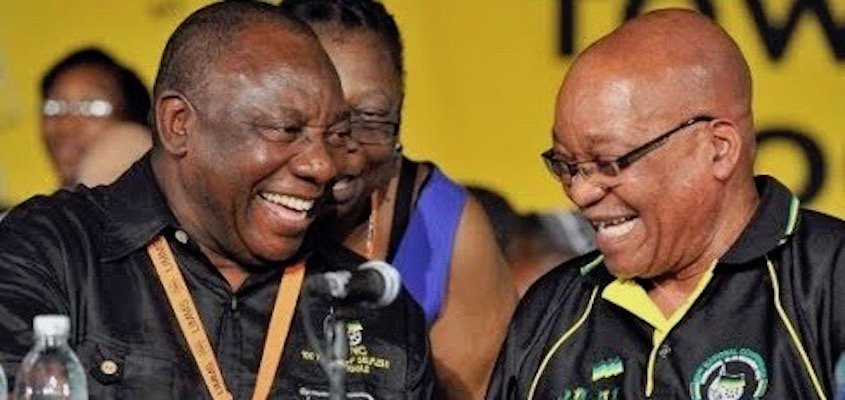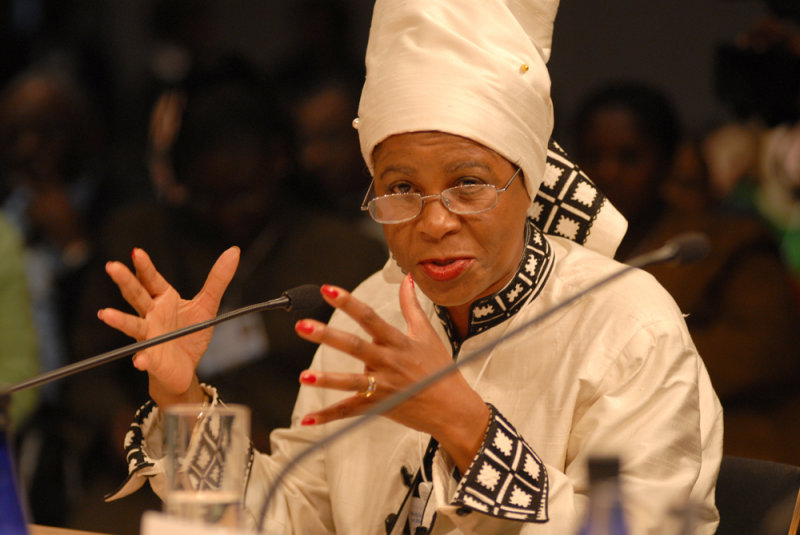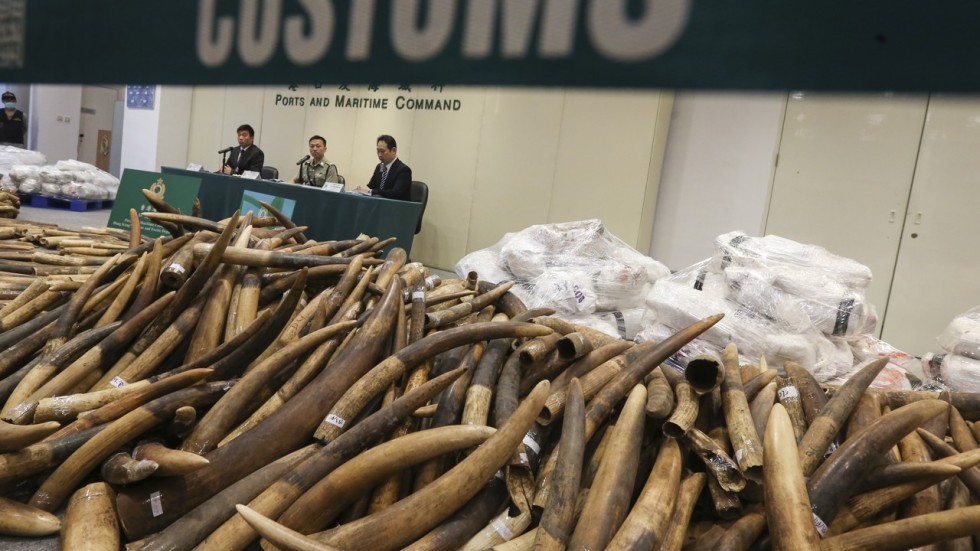
Hi, Q-MHI Africa readers!
REFORM AGENDA

African decision-makers gathered this weekend in Bahir Dar, Ethiopia for the high-level Tana Forum on security in Africa. The theme this year is about how the African Union could better finance its own security agenda in order to reduce the continent’s dependence on donors and hence, keep foreign intervention at bay.

Africa is the region with the smallest military expenditure globally, allocating $39.2 billion in 2016 for its more than 1.2 billion population. This is despite the fact that the continent faces some of the key security challenges of our time including terrorism, violent extremism, ongoing wars, besides clashes between herdsmen and farmers precipitated by the effects of climate change.

Currently, much of the budget to address these issues come from external funding. In fact, much of the AU’s budget comes from international donors, with 30 out of the 55 member states defaulting either partially or completely on their contributions. In 2017, 73% of the AU’s $782 million budget came from international partners, with member states contributing $212 million, or a total of 27%.


To increase self-reliance and support peace operations, the AU has suggested a 0.2% import levy on eligible goods, which officials hope, will raise up to $400 million by 2020.


By owning and shaping its financial agenda, the continental body aims to not only improve its performance and governance structure but also assert its political legitimacy and credibility. The security reform agenda follows the passing of two signature AU decisions this year aimed at opening up the continent’s skies through a single air market and the establishment of a continental free trade agreement—the largest in the world since the creation of the World Trade Organization.

Beyond the rhetoric and promises, the bigger challenge of attaining a secured future begins now. The pressing question will be how to sustain long-term financing, strengthen the institutions that drive integration while bearing in mind how previous efforts floundered due to lack of implementation. The AU will also have to recognize security reform is not just about governments and institutions but about people who deal with the dire consequences of policymaking every day.


But achieving fiscal autonomy is indeed a crucial first step in realizing “African solutions to African problems.” As AU chairman Moussa Faki says, “Without its independence, Africa is nothing at all. With its independence, it can be everything.”
— Abdi Latif Dahir, Q-MHI Nairobi correspondent
STORIES FROM THIS WEEK

Blockchain’s cultural stumbling block is an opportunity for Africans to make it their own. Q-MHI Africa Innovator Bright Simons argues debates around blockchain’s potential are somewhat naïve because they fail to recognize the technology’s inherent ideological baggage, specifically around trust. In African cultures, where trust holds a different currency to the West, could there be even more uses for blockchain?

African athletes keep going missing at global sporting events and it’s only going to get worse. At this year’s Commonwealth Games in Gold Coast, Australia, at least 13 African athletes absconded from their team camps. As Yomi Kazeem explains, even as top professional athletes competing at an international event, their reasons are like those of any prospective migrant—the search for a better life.

CNN’s show about women and love went to Ghana and sparked a national outrage. Ghana hasn’t suddenly become an ultra-puritanical society, but locals were furious that the views of one woman and her “sugar daddy” lifestyle seemed to speak for all Ghanaian women in an interview with Christiane Amanpour. It was especially at odds, as Pamela Ofori-Boateng points out, for a country that has seen increasing economic and professional opportunities for women.

Scientists are putting their ears to the ground to uncover Africa’s history and future riches. Using recordings from ground vibrations, sensors create an image of the continent’s interior, as computational seismologist, Tolulope Olugbojidemonstrates. Without digging up the earth, the sensors can uncover the history of the continent’s land mass and water resources and map the distribution of Africa’s undiscovered underground resources.

African cities are battling escalating noise pollution—but religion won’t cooperate. Whether it’s the call to prayer or the sound of a sermon on a loudspeaker, authorities are struggling to curb the noise levels of the religious practices that many Africans rank as a “very important” component in their lives. But it’s also an increasing health hazard in urban living and one that is a contentious issue to navigate, never mind legislate.

Big businesses in Africa need to start corporate venture arms to fund startups and secure their own future growth. African companies are expanding beyond the continent but in order to keep up with international competitors they need cutting-edge technology. Local African startups are the best places to find this technology, writes Aubrey Hruby, which is why companies like MTN and Dangote need to start thinking about themselves as venture capitalists too.
CHART OF THE WEEK


Tunisia shows other African countries how to legistlate success in the tech sector. When startups have succeeded in Africa, it’s usually in spite of governments and their regulations. Now, Tunisia wants to kickstart its tech ecosystem through a “Startup Act.” The legislation will support entrepreneurs as they grow their fledgling businesses and ultimately stem the talent exodus from the north African country.

OTHER THINGS WE LIKED

How Mandela’s political heirs grow rich off corruption. South Africa has been gripped by corruption scandals in recent years, but often the headlines lose sight of the people worst affected—the very people who suffered the worst under apartheid. For a report in the New York Times, Norimitsu Onishi travelledto a dairy farm that was meant to benefit poor black farmers, but instead become a symbol of post-apartheid South Africa’s failings.
In the generation since apartheid ended in 1994, tens of billions of dollars in public funds — intended to develop the economy and improve the lives of black South Africans — have been siphoned off by leaders of the A.N.C., the very organization that had promised them a new, equal and just nation.

Corruption has enriched A.N.C. leaders and their business allies — black and white South Africans, as well as foreigners. But the supposed beneficiaries of many government projects, in whose names the money was spent, have been left with little but seething anger and deepening disillusionment with the state of post-apartheid South Africa.While poverty has declined since the end of apartheid, inequality has risen in a society that was already one of the world’s most unequal, according to a recent report by the World Bank and the South African government.

The nation was governed for nine years by the scandal-plagued PresidentJacob Zuma, whose close ties with the Gupta family — three Indian brothers at the helm of a sprawling business empire built on government contracts, including the dairy farm — outraged voters. Their cozy relationship contributed to the A.N.C.’s recent electoral losses and helped lead to Mr. Zuma’s ouster two months ago.

Promising a “new dawn,” Mr. Zuma’s replacement, Cyril Ramaphosa, has said that he would make fighting corruption a priority as the nation’s new president. But he is also a veteran A.N.C. insider, and the early signs have not been encouraging.
Having become party leader by a razor-thin margin, Mr. Ramaphosa has tried to keep together a fractured A.N.C. by moving cautiously. He formed his first cabinet by appointing some well-respected officials, but also included allies — his own and Mr. Zuma’s — who have been accused of corruption by the Public Protector’s office and good governance groups.At just under $21 million, the money lost in the Vrede dairy farm may seem small. But it is a big test of whether South Africa’s new government has the power and the will to confront public corruption at its source.
The police have apprehended some low- and midlevel officials involved in the dairy farm, the first arrests related to a high-profile case of public corruption during the Zuma presidency. But notably, they have yet to pursue any A.N.C. officials. Mr. Zwane has not faced any charges. What’s more, the provincial premier who approved the project, Ace Magashule, was recently elected secretary general of the A.N.C., elevating him to the top ranks of the party’s leadership.

SAP, the German software behemoth, is being investigated by the United States Department of Justice and the Securities and Exchange Commission after it disclosed payments to intermediaries on state contracts that may have contravened the Foreign Corrupt Practices Act.International banks have been ensnared in the scandals, too. HSBC and Standard Chartered have been accused by a British lawmaker of laundering the Guptas’ ill-gotten gains. HSBC says it has closed a number of accounts that belonged to front companies operated by the Gupta family.

Many trace the deep corruption in the nation to a fundamental flaw in South Africa’s transition from white rule to democracy a generation ago. In the grand bargain struck between the apartheid government and the A.N.C., headed by Nelson Mandela, a transfer of power was carried out peacefully, disproving predictions of civil war and earning Mr. Mandela accolades as a visionary peacemaker.

After 27 years as a political prisoner, Mr. Mandela did not understand South Africa’s political economy and agreed to a settlement that failed to secure black South Africans’ economic independence, said Mamphela Ramphele, an anti-apartheid activist who became close to Mr. Mandela. She later went on to serve as a managing director of the World Bank.“He didn’t know any better,” Ms. Ramphele said.

The first long-term study of ivory poaching dispels many myths.The University of Antwerp’s Kristof Titeca collected data on poaching in Uganda for five years and found that poaching and the illegal international ivory trade are far more complex crimes. In this summary in the Washington Post of his published research, Titeca argues that there is no single solution.

First, the illegal ivory trade isn’t organized by a transnational crime syndicate or international gang. Rather, local traders buy and sell from and to a variety of sources, depending on what opportunities arise. Particular locations — such as border towns — act as key nodes, destinations and transit hubs where ivory is smuggled, stored and resold. Traders and middlemen keep it in storage until conditions are right for shipment and sale, watching factors including market price, demand and the general security situation.

Second, the transnational trade does not oversee and guide ivory poaching. Rather, international ivory traders largely depend on local black-market traders. These local ivory deals are part of, and rely on, historically embedded trading networks to buy, move and store not just ivory but also other illegal commodities such as minerals, and smuggled gasoline or cigarettes. Local traders therefore connect the poachers with the transnational middlemen, selling the ivory to international dealers from a range of nations, including China, Turkey and South Africa.

Third, these local traders have different degrees of power, drawn from their connections with individual government officials. Some traders have long-standing relationships with lower-level government officials such as customs officials and police officers. These traders limit their activities to “their” region. This is the case for most traders in the Uganda-Congo border, who largely limit their activities to buying, smuggling and selling ivory along the border.

Other traders have more powerful connections with rogue high-level security officials. This allows them to trade ivory over longer distances, including moving it through more sensitive border points or airports. Thus they can sell more ivory at higher prices, and operate even when the climate is more hostile, as when confiscations increase.
Senegal’s defiant and inspiring bass guitarist. While people with albinism still face discrimination and violence, Maah Keita (no relation to Salif) faced her fears by going on stage and playing music that people loved. The Senegalese bass guitarist started a band, opening for local and international acts. As this video on Ozy shows, rather than hide, Keita and her band plan to make the most of the spotlight.
Q-MHI Africa 









Tidak ada komentar:
Posting Komentar